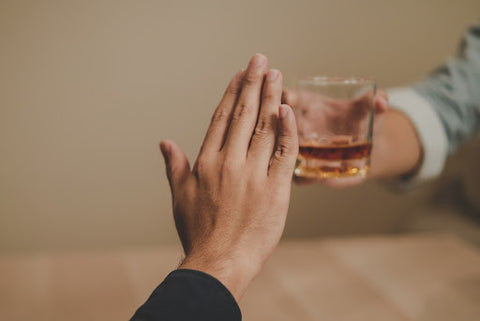
Coffee Myths you should immediately stop believing
When there are so many misconceptions about the coffee you drink in the morning, it might be difficult to enjoy it. For instance, it seems that coffee makes people constipated. Since coffee has been around for a very long period, it is not surprising that thousands of myths have developed over the years.
Despite the fact that many myths about coffee have been disproven, many of them still exist today. Unfortunately, it's not always a good idea to believe these beliefs, therefore it's important to set the record straight and dispel these caffeinated rumours.
Drink in these 11 facts and wake up!
Myth #1: Your afternoon cup will cause insomnia

A stimulant, caffeine. However, the caffeine you ingest in your post-lunch cup is swiftly broken down by the liver and virtually all of it (about 75% of it) is eliminated from the body 4 to 7 hours after ingestion. So, unless you have a poor metabolism, if you drink your second cup at 3 p.m., it will be fully gone by the time you go to bed.
Myth #2: You should use boiling water on the grounds

The water will begin to remove some of the bitter oils from the coffee grounds and may even scorch them if the temperature rises beyond 200 degrees Fahrenheit. The burnt flavour is likely a result of the extremely hot water.
Reminder: Allow your coffee to warm up to room temperature before consuming. A very hot beverage could increase your risk of esophageal cancer.
Myth #3: Coffee dehydrates you
Actually, no. Exactly why? Look at your coffee, then. Do you see how thin it is? This quality can be attributed to all the water in a cup of coffee. The dehydrating effects of caffeine are offset by the amount of water in a cup of coffee.
Myth #4: A cup of coffee will make you sober
The short answer is no, although there are just as many drinking fallacies as there are about caffeine. An drunk individual may become more alert from caffeine, but a study found that coffee does not counteract alcohol's detrimental effects on cognition.

Actually, it's much worse for you. Intoxicated drivers may feel alert and capable enough to handle hazardous scenarios like driving or putting oneself in risky social situations if they drink alcohol or caffeinated beverages, according to research.
Myth #5: Coffee helps you lose weight

Caffeine's stimulating properties can assist your metabolism a little, but not enough to significantly impact your diet, especially in terms of long-term weight loss. Although caffeine temporarily suppresses appetite, there is no proof that long-term coffee drinking promotes weight loss. Caffeine may make you feel less hungry for a short while.
Note: Drinking coffee may enhance athletic performance and endurance.
Myth #6: Coffee stunts your growth
This urban legend has been around for a while. There is no scientific proof to back up this story, which is ambiguous in its origin.
Myth #7: Caffeine is highly addictive
The central nervous system stimulation caused by caffeine results in a very modest dependence, but the withdrawal symptoms last only a day or two and are very different from the withdrawal symptoms.
Myth #8: Coffee is bad for your health
There is a tonne of scientific proof that coffee is healthy. It won't harm you to have a moderate daily caffeine intake of up to 300 mg, or three cups of coffee. There is no connection between caffeine and high cholesterol or cardiovascular disease, however if you have high blood pressure, you could perhaps suffer a brief increase in heart rate.
Myth #9: Coffee is harmful for pregnant Women

Pregnant women are recommended to keep their daily caffeine intake to 200 milligrammes, or roughly one cup of coffee. Although coffee can cross the placenta and get to the infant, there are no conclusive studies showing that it is detrimental.
Myth #10: The darker the roast, the stronger the coffee

Contrary to popular perception, roasting does not cook out caffeine, according to scientific studies. At 352°F and 760 mm Hg, caffeine sublimates. Normally, the temperature of coffee beans during roasting doesn't rise to so high.
Myth #11: All coffee has the same amount of caffeine
Coffee is not always brewed in the same way, and some cups contain much more caffeine than others.
We are delighted to bring to you a few benefits for your health that have been scientifically established after dispelling these myths. Any habitual coffee drinker will tell you that coffee increases sociability, alertness, concentration, vitality, and clarity of thought. You may even be the kind of person that must have their first cup of coffee in the morning before speaking a word. These findings are supported by scientific data. Additionally, a French study found that coffee-drinking women experienced a slower deterioration in cognitive function.
Remember that excessive amounts of caffeine may have negative effects despite any apparent benefits.


















